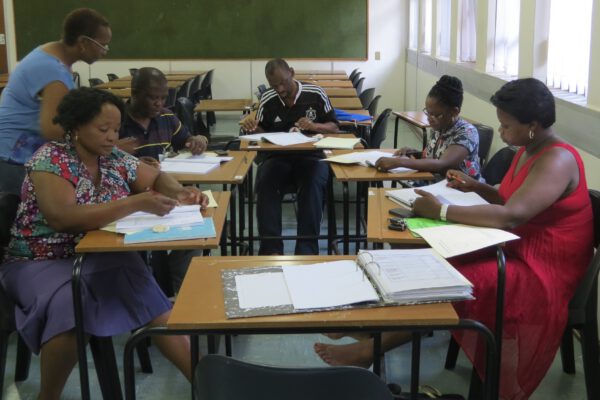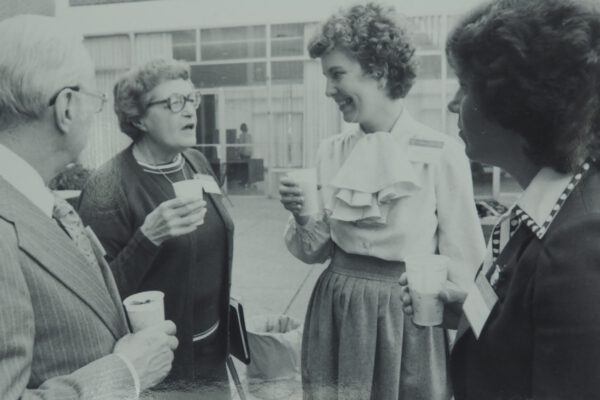Two ACE members are among the higher education institutions making it easier for prisoners and the formerly incarcerated to earn undergraduate degrees, which in turn makes it easier for them to reintegrate into society.
Bard Prison Initiative
The privately funded Bard Prison Initiative (BPI) is a degree-granting, credit-bearing program that enables incarcerated men and women to earn associate in arts and bachelor of arts degrees from Bard College (NY).
Started in 1999 by Bard student Max Kenner, BPI enrolls more than 300 students in six locations within the New York state prison system. As of June 2017, Bard College has granted nearly 450 degrees through BPI.
BPI’s academic standards and workload are rigorous, based on a mix of attention to foundational skills and ambitious college study. Only 10 to 25 percent of applicants are accepted, but the demanding curriculum garners results: Recidivism for BPI graduates is 2.5 percent, compared to a state average of around 60 percent. The BPI debate team famously defeated the Harvard University (MA) team in 2015.

In 2009, BPI received a private grant to help create the Consortium for the Liberal Arts in Prison. Through the consortium, BPI has helped other colleges and universities to establish and maintain college-in-prison programs, including Wesleyan University (CT), Dwight Hall at Yale University (CT), Grinnell College (IA), University of Notre Dame (IN), Holy Cross College (IN), Goucher College (MD), Washington University in St. Louis (MO), University of Vermont (VT), Bennington College (VT), and University of Puget Sound (WA).
Read more about BPI in this NPR article.
San Francisco State University’s Project Rebound
Project Rebound provides a pipeline to San Francisco State University (SFSU) directly from the California criminal justice system, offering admission for students who transfer units from accredited prison college programs, and freshman who have their high school diploma or GED®.
Supported by SFSU’s Associated Students organization, Project Rebound provides participants vouchers for meals and public transit as well as a textbook stipend.
Recidivism for participants is low, as only three percent of students return to prison, compared to the statewide rate of 65 percent. The late John Irwin established the original Rebound program at SFSU in 1967. As a parolee himself, Irwin earned his Ph.D. and was a sociology professor at the university for 26 years.
He became a nationally known advocate for prison reform and an avid researcher who completed five published literary works.
As of June 2016, eight additional California State Universities are now replicating the initiative, with others showing serious interest. The expansion helps serve more students, as Rebound can only accept about half of those that apply, and parolees often are limited by the inability to travel outside of certain parole regions.
At a Glance
ACE Member Institution: Bard College (NY)
Program: Bard Prison Initiative
Highlights:
- More than 60 academic classes are offered every semester across six medium- and maximum-security prisons in New York State.
- BPI offers a liberal arts curriculum, including literature, foreign language, philosophy, history and the social sciences, mathematics, science, and the arts.
- Courses are taught primarily by Bard faculty and visiting professors from regional colleges and universities, including local community colleges, Columbia University (NY), The Graduate Center of the City University of New York, and The New School (NY).
- Some participants go directly to work in the private sector or social services, while others pursue further education.
ACE Member Institution: San Francisco State University
Program: Project Rebound
Support Services:
- Admissions processing
- Academic program advising
- FAFSA assistance
- Advocacy for parole or probation difficulties
- Health center
- Professional psychological counseling
Become a member: As a member of ACE, you join nearly 1,800 organizations that collectively promote, protect and advocate for students, faculty and administrators in higher education. ACE is the most visible and influential higher education association in the nation, and we are at the center of federal policy debates concerning legislation that affects campuses across the country. See more on the ACE website.
If you have any questions or comments about this blog post, please contact us.


